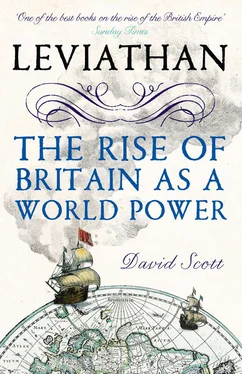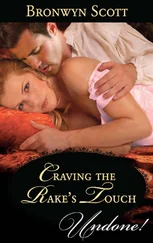To retain the throne that he had so fortuitously won, Henry must invest his rule with such unshakeable authority as to inspire awe and dread in even his greatest subjects. It was Henry’s wish, observed Polydore Vergil, to make ‘all Englishmen obedient through fear’; 21and to Spanish diplomats, writing home in 1498, it seemed that the king was succeeding: ‘Henry is rich, has established good order in England, and keeps the people in such subjection as has never been the case before.’ 22More than most monarchs, Henry equated ‘subjection’ with money. Dudley put it well when he remarked that his royal master believed that ‘security standeth much in plenty of treasure’. 23Although the king was legal-minded in the extreme, not to say obsessively bureaucratic – he scrutinised and countersigned every page of the royal accounts – the financial devices he employed to exact obedience largely explain why the monarchy would become more exploitative, tyrannical even, during his reign than it had been under the mightiest of the Plantagenets.
To appropriate the enormous sums that Henry felt necessary for his security would involve challenging some of the most deeply held political assumptions in English society. England, as we have already noted, had acquired a system of government by the mid-thirteenth century that was deeply rooted in legal forms and observance. This ‘law state’ provided a stable platform from which Edward I (who reigned from 1272 to 1307) and his successors launched invasions of Wales and Scotland, and then took on France in the Hundred Years War. Warfare became England’s staple export from the late thirteenth century and, in the process, law state gave way to ‘war state’, pushing the crown into ever closer political partnership with the landed classes. Needing money and cooperative subjects to sustain their military ambitions, the Plantagenets granted the nobility and gentry a major role in governing the localities, and agreed to impose direct taxation only with the consent of Parliament. The effect of these various trade-offs was to make government increasingly consensual, an activity that a significant section of the population, from yeomen (the village elite) upwards, participated in and manipulated for their own purposes. Royal authority became public authority inasmuch as it was deployed on behalf of and by an informed and articulate political community that existed alongside the monarch. The monarchy, in turn, became more closely identified with the role of serving and protecting society. Faced with Henry VI’s inept kingship in the mid-fifteenth century, this conception of the state as a body devoted to the public good would acquire a new name and language, that of the ‘commonwealth’.
The war state of the later Middle Ages had been capable of prodigious military feats. Henry V’s conquest of Normandy in the 1410s had dazzled all of Europe. Clearly the partnership between the crown and the political community had created a formidable war machine. But looked at from Henry VII’s perspective, the crown had made a Faustian pact with its people. It could tap the wealth of the realm with an efficiency and regularity that some of its European rivals could only envy – but upon two conditions. In England (but crucially, not in France) a consensus emerged during the fourteenth century that direct taxation should only be levied to address an immediate or obvious military need, and on the understanding that such levies required the consent of the political community as represented in Parliament. The taxes voted by Parliament, together with customs revenues and loans, were generally sufficient to meet the crown’s military needs; and Parliament’s support added greatly to royal authority, especially in time of war. But then came the weakening of the monarchy under Henry VI, defeat in 1453, and France’s re-emergence as a European superpower. The English state contained deep-seated forces pushing for prolonged war, and yet geopolitical reality made such a commitment impossible to sustain by the mid-fifteenth century. France was just too powerful. Once intermittent peace became the normal state of affairs, the crown’s dependence upon parliamentary taxation became a huge liability. Henry VII and his successors found themselves trapped by the political conventions of England’s imperial past.
Henry VII’s reluctance to continue hostilities against France beyond 1492 deprived him of parliamentary taxation while at the same time doing little to reduce his need for cash. For example, he spent very large sums of money after 1492 – sometimes in excess of £100,000 (or roughly his ordinary annual income) – on ‘loans’ (bribes) to the Emperor Maximilian and other foreign princes to persuade them to extradite or cease sheltering Yorkist exiles on the Continent. Not quite as costly, but still very expensive, was the investment Henry made in the royal gun-making industry, based at the Tower of London. He was determined to control the manufacture of heavy artillery in England, and to ensure that he had more and bigger guns than any of his subjects. Yet with no war to justify regular parliamentary taxation, his government had to resort to more piecemeal and frowned-upon methods to meet this expenditure. Informers were employed to spy on the monied and influential and to nose out hidden wealth; the property of Henry’s Yorkist enemies was seized at every turn; and a concerted effort was made to exploit the money-raising potential of the royal prerogative – that is, the reserve and emergency powers which inhered in the king by virtue of his status as an anointed sovereign.
These sharp financial practices certainly succeeded in increasing Henry’s income, but as the king seems to have realised, to secure a significant, long-term improvement in royal revenue would require renegotiating the financial – and, therefore, political – relationship between crown and subject. The Spanish ambassador reported that Henry ‘would like to govern England in the French fashion’ 24– in other words, to have fewer constraints upon royal action – but specifically, perhaps, to be in the position of Francis I of France (1494–1547), who when asked by a Venetian ambassador how much he could raise from his subjects replied: ‘Everything I need, according to my will.’ 25
The early Tudors made repeated attempts to shift the basis of their income away from parliamentary taxation to financial sources grounded upon the royal prerogative. This in part explains Henry VII’s reputation for avarice. It also accounts for his unpopularity. For although his exploitation of his prerogative rights was perfectly legal, it violated the spirit of political partnership between crown and people as it had developed in the preceding two centuries. Henry’s resort to prerogative taxation sparked numerous small-scale riots, and contributed significantly to major uprisings in Yorkshire, in 1489, and Cornwall in 1497. The Cornish insurgent army, 15,000 angry taxpayers, got to within a few miles of London before Henry’s cavalry cut it to pieces. When Henry VIII’s chief minister, Cardinal Wolsey, introduced a non-parliamentary ‘benevolence’, or forced loan in 1525 – the spectacularly misnamed Amicable Grant – it would provoke unrest not in far-off Cornwall but in London and the home counties, and was hastily dropped. ‘All people curssed the Cardinal’, claimed one of his critics, ‘as subvertor of the Lawes and libertie of England. For thei said if men should geve their goodes by a Commission [royal warrant], then wer it worse than the taxes of Fraunce and so England should be bond and not free.’ 26The English would continue to associate the French monarchy with tyranny for the next three centuries.
Public opinion and the almost religious veneration of common law and custom – enforced and enforceable through the courts – prevented Tudor monarchs from riding roughshod over ‘Lawes and libertie’ in the manner of French kings. Nevertheless, Henry VII succeeded in making government more regal, and less accountable to the political community – partly because in the absence of long-term military commitments he did not need to call Parliaments as often as his predecessors had. The great struggle against France had required the crown to call Parliaments regularly in order to vote the necessary taxes, and that had given Parliament-men the opportunity to maintain a running check on royal government. Without regular Parliaments it would prove more difficult to hold the monarchy to account. Parliament would not regain the executive power it had enjoyed under the Plantagenets until the British civil wars of the 1640s.
Читать дальше












